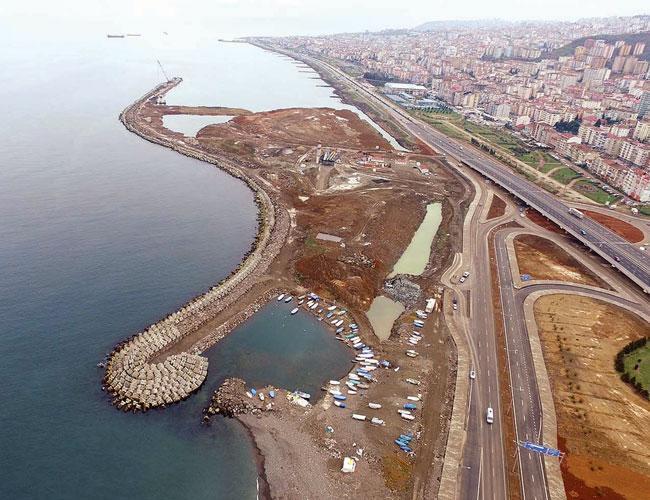
Trabzon, one of the largest provinces in Turkey’s Black Sea region, faces a major environmental threat. Up to 80 percent of the city’s beaches have been filled with soil. For this process, fertile topsoil has been used.
However, this soil has also affected fish reproduction areas.
Eighty-five kilometers of Trabzon’s 119-kilometer-long coast is a natural beach but those areas now face serious environmental threat due to poorly-planned land reclamation. Moreover, soil collected from fertile agricultural land has been used to fill the beaches instead of backfilling stones and rocks.
The wild waves of the Black Sea sweep those poor quality materials into the sea where they turn into mud, which affect the areas where fish reproduce.
Currently, in the Kemerkaya neighborhood of Trabzon, there is ongoing land reclamation to create space for social and cultural activities. For this project, around 800,000 square meters of space will be filled on which thematic areas will be built. The project is estimated to cost 30 million Turkish Liras ($4.7 million). However, the venture has trigged a debate as experts warn over various threats stemming from the use of the topsoil in the project.
Serious risks
“A type of soil usually used in landscaping works is being used in this project,” said Vildan Özmen from the Chamber of Environmental Engineers, warning about potential risks.
“We have similar problems with almost all land reclamation in Trabzon. Works carried out there do not meet the necessary criteria. Soft soil is being used and if the ground is not enforced, cave-ins may occur,” she said.
Özmen said several chambers have acted together to underline similar problems during earth filling work in the city’s Akyazı neighborhood.
She also pointed out the potential damage to the ecosystem along the coastline.
Cemil Pehlivan, the head of the Trabzon branch of the Chamber of Agriculture Engineers, voiced similar concerns.
“This has been a brutal onslaught. What has been done here actually violates the current law number 5403, namely soil conservation and the land use act. Those agricultural lands must be protected. We call on officials to do what is necessary. Agricultural soil should not be destroyed or vandalized,” he said.
“We can utilize the soil used to fill the beaches in idle lands. Under such a project, those lands will produce enough vegetables to meet the demand from the entire Black Sea region. This soil will come into being only 12,000 years after. Human lifetimes are not long enough to see this happen,” Pehlivan said.